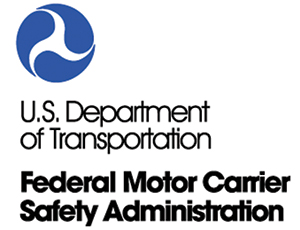Senior Reporter
FMCSA Drops Mandate That Drivers Report Traffic Violations to Their Employers

[Stay on top of transportation news: Get TTNews in your inbox.]
The Federal Motor Carrier Safety Administration has amended its regulations to eliminate a requirement that interstate commercial motor vehicle drivers annually prepare and submit to their employers a list of their convictions for traffic violations and ordinances.
In adopting a Dec. 14, 2020, proposed rule, the agency said it withdrew the requirement because it is largely duplicative of a separate mandate that requires each motor carrier to make a motor vehicle records inquiry for each driver it employs from every state in which the driver holds or has held a CMV operator’s license or permit. This requirement, which does not require checks for parking violations, will remain in effect, the agency said.
However, effective May 9, FMCSA has added a requirement for carriers to also annually check traffic violations for drivers licensed by a foreign authority — rather than by a state — to each driver’s licensing authority where a driver “holds or has held a CMV operator’s license or permit.

“This change requires motor carriers to request MVRs from Canadian and Mexican driver’s licensing authorities,” FMCSA said.
The carrier also must retain certification of no violations in a driver’s qualification file.
The agency said it also amends the final rule to require a motor carrier to make an inquiry to each driver’s licensing authority where the driver holds or has held a motor vehicle operator’s license or permit during the preceding three years to obtain the driver’s motor vehicle records when a motor carrier is hiring a driver.
“FMCSA changes the application for employment rule to require each driver to provide on the employment application the issuing driver’s licensing authority of each unexpired CMV operator’s license or permit that has been issued to the driver,” FMCSA said.
Foreign Drivers
The Federal Motor Carrier Safety Administration estimates that only 2.8% of all commercial motor vehicle drivers operating in the United States are either Canadian or Mexican.
Source: 2020 Pocket Guide to Large Truck and Bus Statistics
“Only a small proportion of CMV drivers operating in the United States are licensed by a foreign authority rather than by a state,” the announcement said. “Of the 6.8 million CMV drivers reported in FMCSA’s 2020 Pocket Guide to Large Truck and Bus Statistics, the agency estimates that at most only 2.3% are employed by Canadian motor carriers operating in the United States, and 0.5% are employed by Mexican motor carriers operating in the United States. The combined total 2.8 % represents 149,119 drivers reported as being employed by Canadian and Mexican motor carriers,” according to FMCSA.
The changes do not increase reporting and recordkeeping costs for motor carriers or drivers because the Motor Carrier Management Information System, the repository for the agency’s driver population data, counts the total number of drivers reported by motor carriers, both foreign and domestic. And, for purposes of information collection burden calculation, the median fee for obtaining motor vehicle records from either a foreign or a domestic authority generally is the same, the agency said.
Want more news? Listen to today's daily briefing above or go here for more info
FMCSA uses the MCMIS driver population data, which currently includes drivers employed by Canadian and Mexican motor carriers, to calculate the burden associated with information collections and paperwork, the Register post said.
There were 86 responsive submissions on the requirement, primarily from individuals. Most of the individuals were drivers or associated with motor carriers. No comments opposing the rule were received from trade associations, labor organizations or safety advocate organizations, the agency said.




